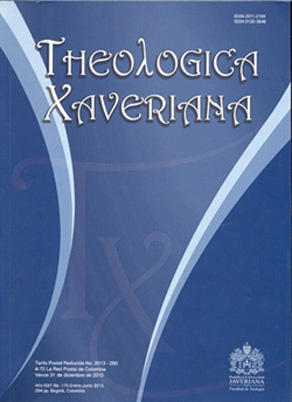Resumen
América Latina ha exhibido regularmente desajustes entre la armazón institucional secularizada y las cosmovisiones ancestrales sobre las que se anclan las nuevas ofertas religiosas del subcontinente. Podría pensarse entonces en la coexistencia de múltiples realidades históricas en la cultura religiosa latinoamericana, suelo propicio para la desarticulación entre la modernización técnico-científica institucional, los restringidos esbozos de modernismo cultural y las tradiciones religiosas históricas de la región. Es claro con ello que la laicización a ultranza, empujada por sectores medios de inspiración ilustrada, no se traduce automáticamente en la pluralización de la actitud espiritual en la cultura, como se evidencia en el auge de los nuevos movimientos religiosos de inspiración fundamentalista.
Esta revista científica se encuentra registrada bajo la licencia Creative Commons Reconocimiento 4.0 Internacional. Por lo tanto, esta obra se puede reproducir, distribuir y comunicar públicamente en formato digital, siempre que se reconozca el nombre de los autores y a la Pontificia Universidad Javeriana. Se permite citar, adaptar, transformar, autoarchivar, republicar y crear a partir del material, para cualquier finalidad (incluso comercial), siempre que se reconozca adecuadamente la autoría, se proporcione un enlace a la obra original y se indique si se han realizado cambios. La Pontificia Universidad Javeriana no retiene los derechos sobre las obras publicadas y los contenidos son responsabilidad exclusiva de los autores, quienes conservan sus derechos morales, intelectuales, de privacidad y publicidad.
El aval sobre la intervención de la obra (revisión, corrección de estilo, traducción, diagramación) y su posterior divulgación se otorga mediante una licencia de uso y no a través de una cesión de derechos, lo que representa que la revista y la Pontificia Universidad Javeriana se eximen de cualquier responsabilidad que se pueda derivar de una mala práctica ética por parte de los autores. En consecuencia de la protección brindada por la licencia de uso, la revista no se encuentra en la obligación de publicar retractaciones o modificar la información ya publicada, a no ser que la errata surja del proceso de gestión editorial. La publicación de contenidos en esta revista no representa regalías para los contribuyentes.


